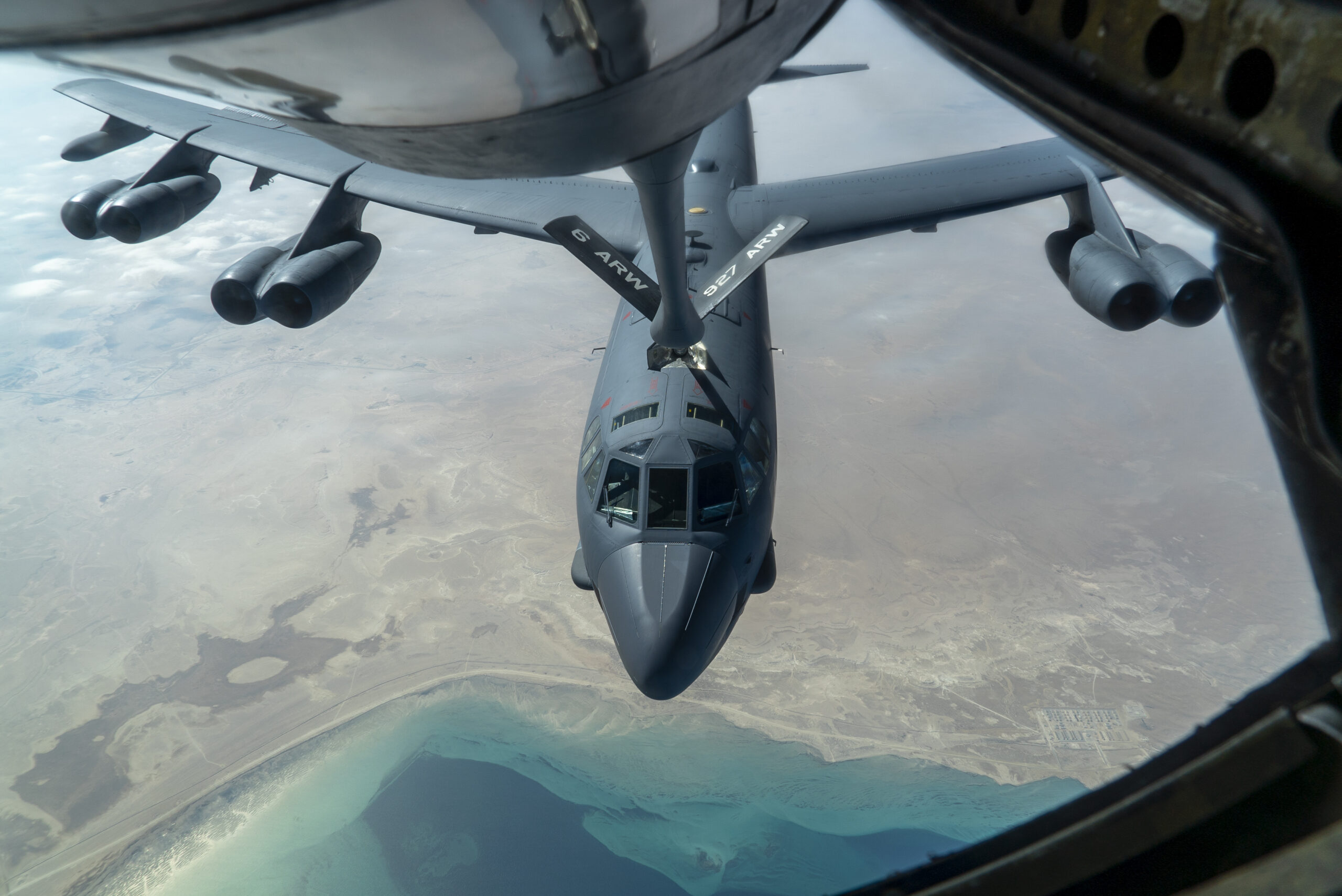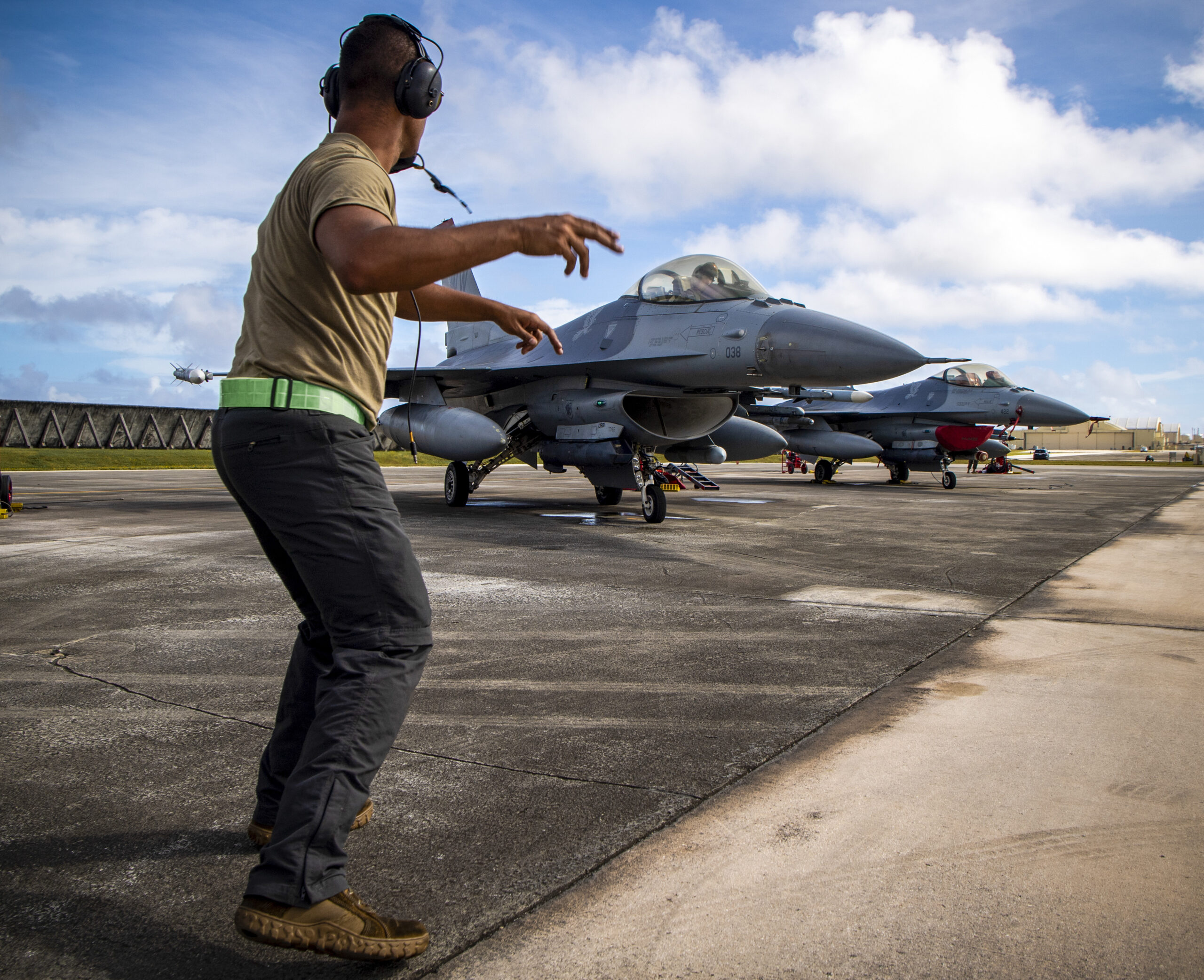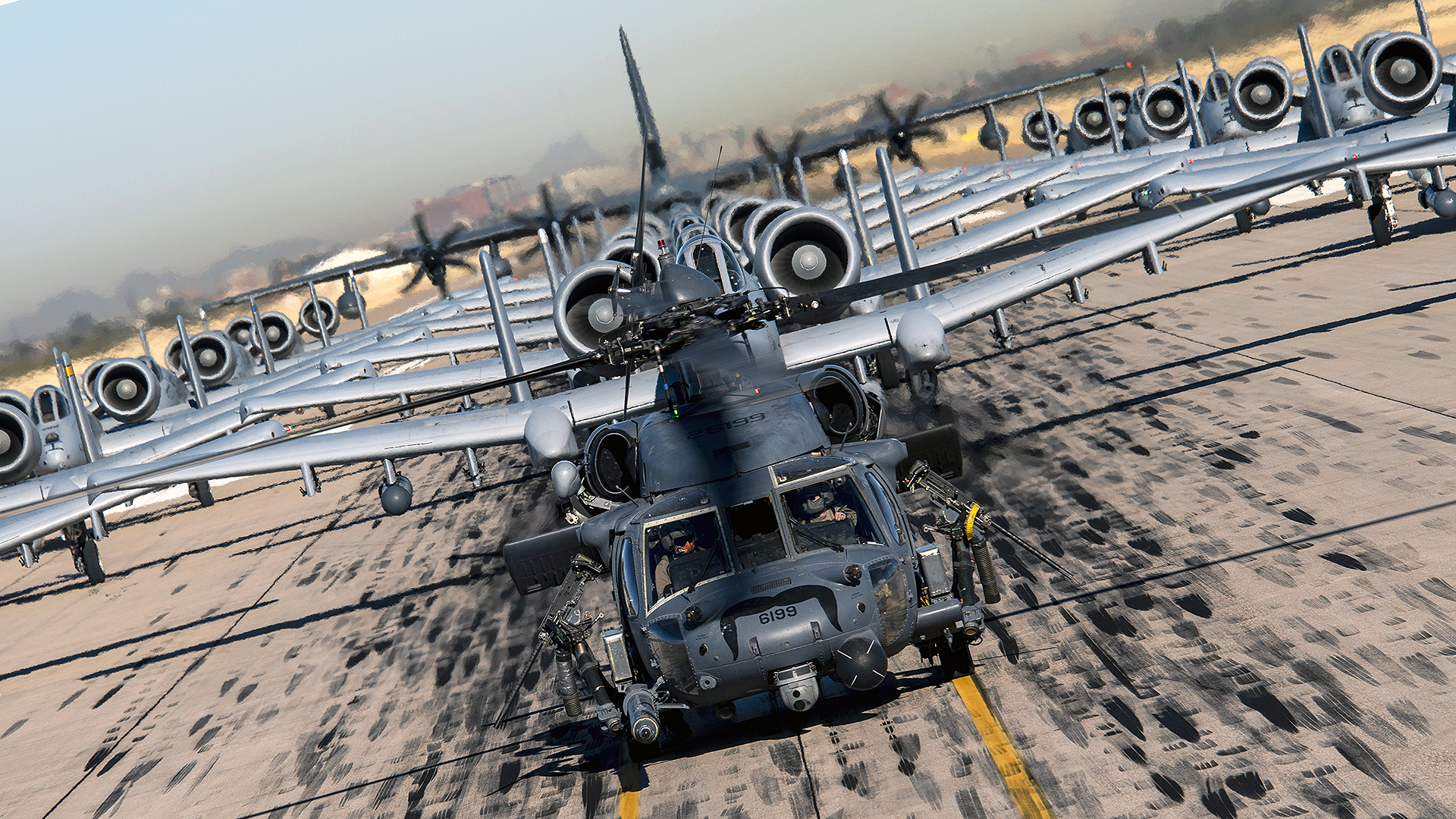To better cope with the emerging threat from China, the Air and Space forces announced two dozen changes to their force structure ranging from creating a new major command (MAJCOM) and rebranding others to altering how air wings deploy.
Dubbed “Reoptimizing for Great Power Competition, it is a mix of near- and mid-term efforts designed to better position for the future at minimal additional cost, Air Force Secretary Frank Kendall said at the AIr & Space Forces Warfare Symposium in Aurora, Colorado on Monday. Some of these efforts could take a year or longer to implement.

“China has been building a military that is designed purpose-built to deter and defeat the United States if we intervene in the western Pacific,” Kendell said. “We need these changes now. We are out of time to reoptimize our forces to meet the strategic challenges in a time of Great Power Competition.”
Air and Space Force officials acknowledged that this plan is neither perfect nor immediately ready to implement, with more details to work out. The goal is to consolidate functions across the forces, reduce needless duplications of efforts and allow commands like U.S. Air Forces In Europe and U.S. Air Forces Africa (USAFE), Pacific Air Forces and Global Strike Command to concentrate on warfighting.

Here is what we know:
The plan calls for the creation of Integrated Capabilities Command (ICC). In essence, it will help the Air Force define, design and develop concepts and programs for future investment.
“This organization will help us to prioritize our investments, and will be responsible for working with us to determine the next iteration of operational imperatives,” said Acting Air Force Undersecretary Kristyn Jones.
What used to be called Air Education and Training Command (AETC) is being rebranded to Air Development Command (ADC). The idea is to consolidate the development of airmen, expand technical tracks for officers and build out a warrant officer track for IT, among other changes.

Two MAJCOMS are taking on expanded roles.
Air Combat Command (ACC) will expand from providing air combat forces to focusing on readiness for the entire Air Force and planning large-scale exercises, and ensuring that the combat wings can deploy as effective units.
Air Force Materiel Command (AFMC) will add three systems centers; Information Dominance Systems Command, Nuclear Systems Center, establish an Integration Development Office and transition the current Lifecycle Management Center to the Air Dominance Systems Center.
In addition, Air Force Cyber Command will be elevated to a standalone service component command to better reflect the importance of the cyber mission to the Joint Force and across the Air Force.
The plan also changes how Air Force operational wings will be deployed. Instead of sending small groups of airmen downrange from different wings to form new ones, wings will train together then deploy with various elements including public affairs, security and maintainers, among others.

Operational wings will be restructured as mission ready “Units of Action,” the Air Force explained, categorizing them as Deployable Combat Wings, In-Place Combat Wings or Combat Generation Wings. “Each will have its own structure, with a redesigned concept of support for Agile Combat Employment or ACE, to ensure the wings are prepared to execute their missions with assigned Airmen and units,” according to the Air Force.
The plan will also redraw the relationship between combat wings and their base command.
“Combat wings will focus on mission level warfighting readiness and base commands will focus on supporting combat wings and operating the base in competition, crisis and conflict,” the Air Force stated.
The Space Force is creating a Space Futures Command, a new field command developing and validating concepts and conducting experimentation and wargames, among other functions.
Space Force is also creating combat squadrons as the basic unit and will change the way it trains its Guardians.
“We have to be able to give our people the training, the education, the experiences, that they’re going to need to be successful in the high ops tempo, that the high tech environment that they will face,” said Chief of Space Operations Gen. Chance Saltzman.

The Air Force and Space Force have laid out their visions for the future in terms of structure, but making that happen is the next step. Kendall said the plans were designed for minimal financial impact.
“We’ve got to try to do things in a way which does not impose on the cost. Now there’s the financial costs. There’s also the disruption associated with the movement. And then there’s deliverables.”
Kendall provided limited details on the ultimate price tags.
“We have nothing in the [Fiscal Year] ’24 or ’25 budgets for any of these changes. If you need any funds in those periods, we’ll have to reappropriate it. There’s a possibility we’ll have some funds in [Fiscal Year] ’26.”
We have been through sweeping announcements before when it comes to the USAF’s overall structure, some of which never came to pass. Exactly how this plays out in the months to come, and finding out the details that underpin this plan, will be interesting to say the least.
Contact the author: howard@thewarzone.com
